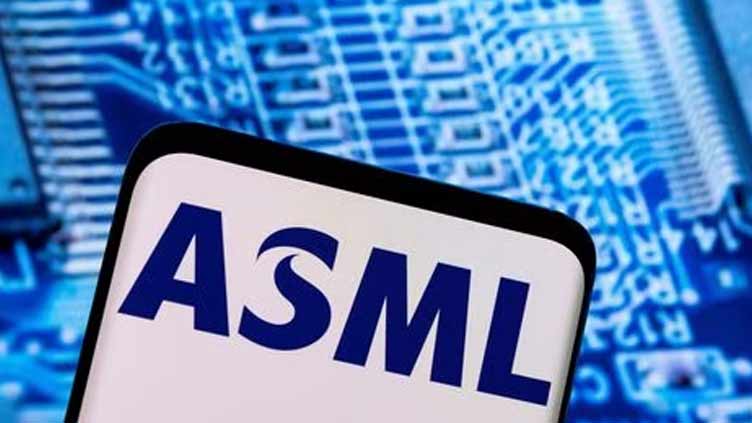Dutch lawmakers question new US export restrictions on ASML chip machine

Technology
US last week announced new rules giving Washington right to restrict export of Twinscan NXT1930Di
AMSTERDAM (Reuters) - Several Dutch lawmakers on Tuesday challenged the Netherlands' Trade Minister over whether the U.S. has acted correctly in unilaterally imposing new rules regulating the export to China of another chipmaking machine made by ASML Holding (ASML.AS).
Trade Minister Liesje Schreinemacher said during a parliamentary debate the Cabinet was not opposed to the new U.S. rules affecting Europe's largest tech firm but "this should be tackled in a much more European way."
The U.S. last week announced new rules giving Washington the right to restrict the export of Veldhoven-headquartered ASML's Twinscan NXT1930Di machine if it contains any U.S. parts at all.
The deep ultraviolet (DUV) lithography machine can be used to help make both relatively advanced computer chips as well as mid-range and older chips. U.S. policy is aimed at slowing China's technological and military advances.
ASML said it would abide by the U.S. rules, and it believed in practice the new restrictions would apply only to a tools for a small number of Chinese plants capable of making "advanced semiconductors."
The U.S. has pressured the Dutch government not to export any of its most advanced machines to China since 2019, and in June the Dutch government introduced its own licensing requirement for slightly less advanced machines. Those do not cover the 1980di tool.
ASML dominates the market for lithography equipment, used by chipmakers such as TSMC (2330.TW), Samsung (005930.KS) and Intel (INTC.O) to help create the circuitry of chips. China is historically ASML's third-largest market after Taiwan and South Korea.
Schreienmacher said that the Netherlands has so far negotiated with the U.S. alone over restrictions but "naturally it's better to do that in coordination with other (EU) member states."
"I've had several conversations with my colleagues in other countries about this," she said, including with European Trade Commissioner Valdis Dombrovskis and Internal Market Commissioner Theirry Breton.


